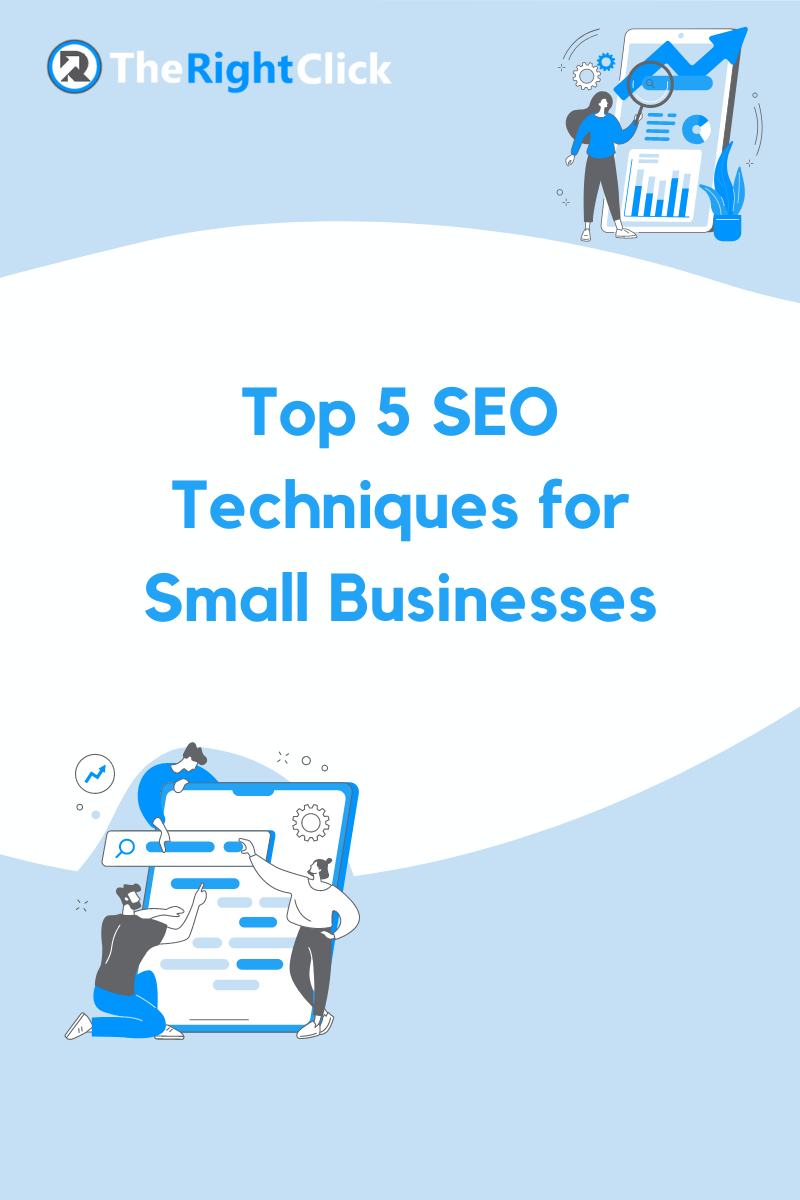Top 5 SEO Techniques for Small Businesses
Search engine optimization (SEO) is essential for small businesses that want to improve their online visibility and attract more customers. With so many different SEO techniques available, knowing where to focus your efforts can be a challenge. In this article, we’ll discuss the top 5 SEO techniques for small businesses that can help you improve your search engine rankings and drive more traffic to your website.
- Keyword Research
Keyword research is the foundation of any successful SEO campaign. It involves identifying the keywords and phrases that your target audience is searching for online and optimising your website content around those keywords.
To conduct keyword research, start by brainstorming a list of potential keywords and phrases related to your business. Use keyword research tools like Google Keyword Planner, Ahrefs or SEMrush to identify the most relevant and high-traffic keywords in your niche.
- On-Page Optimization
On-page optimization involves optimising the content and structure of your website pages to make them more search engine friendly. This includes optimising page titles, meta descriptions, headings, and content around your target keywords.
To optimise your website pages, ensure that each page has a unique and descriptive title and meta description. Use header tags (H1, H2, H3) to structure your content and make it easier for search engines to understand and try to include your keywords within your website copy (without shoehorning it in).
- Link Building
Link building involves acquiring high-quality backlinks to your website from other authoritative websites in your niche. Backlinks are important because they signal to search engines that your website is trustworthy and relevant.
For new websites with a low domain rating, a few smart Google searches can help you find plenty of quick and easy links from online directories. For more established businesses building backlinks can be tedious, but if you focus on creating high-quality content, other websites in your niche will want to link to you. If not, you can also reach out to websites and request that they link back to your content.
- Content Creation
Creating high-quality and engaging content is critical for SEO success. Search engines prioritise websites with fresh, unique, and informative content that provides value to their audience.
No one knows your brand better than you! To create content that resonates with your audience and search engines, identify the topics and questions that your target audience is interested in and create content around those topics. Use keywords and phrases in your content to improve its relevance and optimise it for search engines.
- Local SEO
Local SEO is essential for small businesses that want to attract customers in their local area. Local SEO involves optimising your website and content around local keywords, creating, and optimising Google My Business listings, and acquiring local backlinks.
To optimise your website for local SEO, include your location and service area in your content and meta descriptions. Ensure that your business information (name, address, phone number) is consistent across all online directories and listings.
In conclusion, SEO is critical for small businesses that want to improve their online visibility and attract more customers. By focusing on these key areas, small businesses can improve their website traffic and start to focus on brand awareness.

